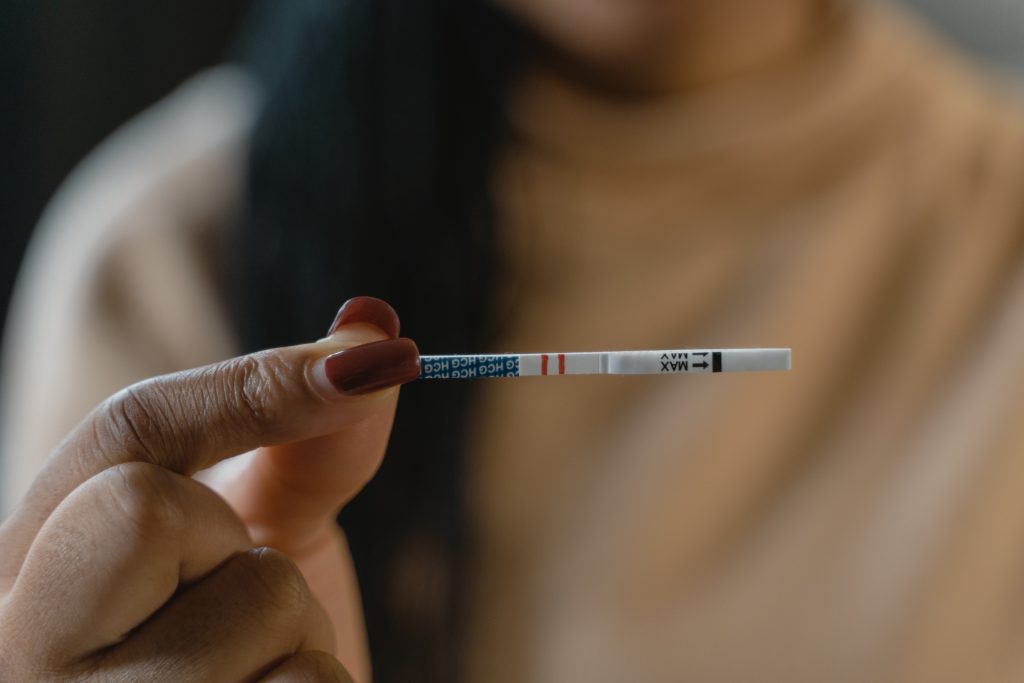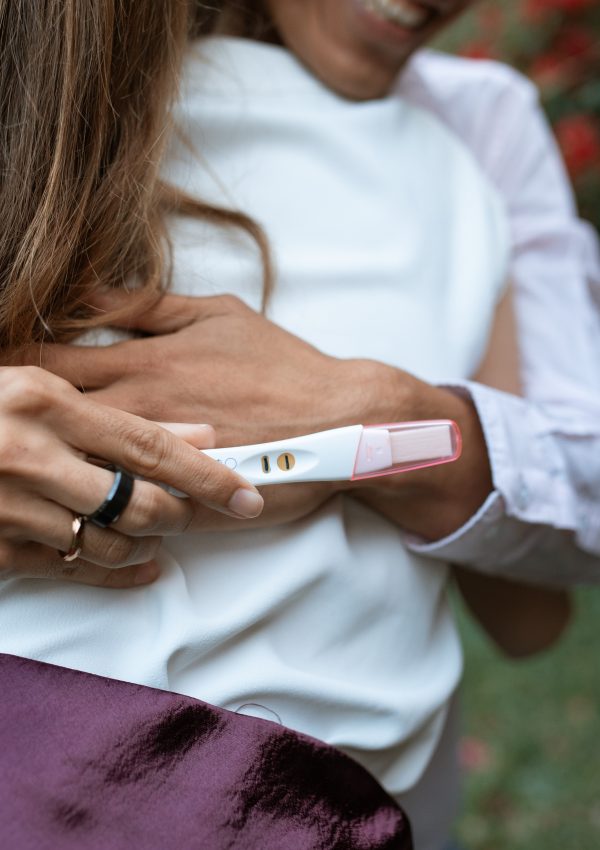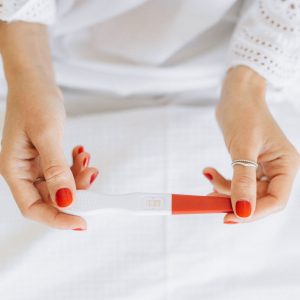Are you trying to get pregnant or thinking about starting? Here’s everything you need to before before you start your trying to conceive journey.
This post may contain affiliate links, which means I’ll receive a commission if you purchase through my link, at no extra cost to you. Please read the full disclosure here.
There is so much that goes into trying to get pregnant and because of that, it’s so easy to get overwhelmed and even discouraged if you don’t get pregnant right away. It’s important to know what is realistic vs. what isn’t. It’s also useful to have general knowledge about the process early on because the end goal is to have a bundle of joy as soon as possible.
There is so much information available on the internet and it’s easy to go down the rabbit hole and begin to worry. Hopefully this post helps put this whole process of trying to conceive in perspective. More importantly, I hope it gives you tips and helpful advice on how increase your chances of getting pregnant.
This post will give you some general pointers about what is important to know before trying to get pregnant.

You can’t get pregnant at any time of the month
When my husband and I first started trying to get pregnant with our first baby, I actually thought that you could get pregnant at any time of the month. I knew that ovulation happened at some point during your cycle but as far as fertility before vs. after ovulation? I had no idea.
To put it simply, you can’t get pregnant after ovulation is complete. There are actually only about 6 days a month where you can get pregnant. Ovulation occurs roughly halfway through your cycle. Your fertile window typically lasts from the end of your period to when ovulation occurs, and these days are different for everybody. Furthermore, the reason why you can’t get pregnant after ovulation is because the egg that is released dies after 24 hours and sperm can’t fertilize a dead egg.
Your cycle length can change every month, even if you’re regular
There are plenty of different factors that can affect your cycle such as stress, diet, timezone changes while traveling, sleep cycles, and more. All of these factors are reasons why it’s best to use ovulation tests, fertility trackers, and charting to track your fertile window.
The cycle tracking apps usually base cycle predictions under the assumption that you have a 28-day cycle. Even though they do get more accurate as you enter more information, they still only predict. If you’re relying solely on those, you’ll likely end up trying to get pregnant on the wrong days.
One month will feel like a year
Trying to get pregnant is such a long process! The months used to fly by but when you’re trying to get pregnant they go by unbelievably slow. Like I mentioned above, there are only a few days a month where you can get pregnant. Once your fertile window is over, there isn’t anything you can do to get pregnant until your next cycle. The period of time between the end of ovulation and the start of your next period is known as the Two-Week Wait.
If you’ve been on the trying to conceive forums at all, you’ve probably noticed that there is often some anxiety, impatience, boredom, and frustration during the Two-Week-Wait. Part of the reason for this is because you have to wait a few days to a few weeks before you can take a pregnancy test. Between the waiting and testing, there is a lot of time to twiddle your thumbs and just hope for the best.
A few things that you can try to pass the time by are:
- Browsing the forums like BabyCenter or What to Expect
- Reading
- Self care, mainly taking epsom baths and relaxing when I could
- Working (if you work) or house chores
- Learning a new hobby
- Watching new shows or movies on Netflix
- Going on a date with your partner
Testing early will only stress you out
Taking a pregnancy test as early as possible is something I only saw when I started going on the trying to conceive forums. I tried it myself for literally a month and got frustrated and didn’t do it again. Some people like to see the progression of the line getting darker but if you’re not pregnant and that line never gets darker, you’re just setting yourself up for disappointment.
The First Response Early Result pregnancy tests claim that you can test 6 days before your next period. Which is one of the most sensitive tests on the market. As a result, you’ll often see these tests all over the forums. The average woman, however, will not get a positive pregnancy test that early but that doesn’t stop people from trying including myself!
You’ll see comments like “I know it’s not going to be positive but I can’t help myself.” Trust me when I say this, try your best to resist the urge! I was so much less stressed when I waited to test until my period was late. When your period is late, your chances of getting a clear positive pregnancy test are much higher than if you’re testing just a week after ovulation. Your body needs time to build up the pregnancy hormone, hCG, for it to register on the test.
Having intercourse only on the day you ovulate is too late
The best way to get pregnant is to have sex in the days leading up to ovulation. The only way to know your fertile days that lead up to ovulation is by tracking your cycles and using an ovulation test. There are plenty of couples that have sex on ovulation day, thinking that’s the most fertile day, when it’s actually too late. The sperm need up to a few hours to get to the egg and you could miss your chance for the month if you’re not careful.
Sperm can live up to 5 days in the uterus depending on different factors like cervical mucus. The reason your fertile window is even your fertile window is because the cervical mucus you produce during that time makes it easier for sperm for move. The better they move, the better their chances of reaching your egg.
The best way to ensure that the sperm are where they need to be by ovulation, is if they are already there waiting. When they’re waiting, they can fertilize the egg pretty much as soon as it’s released from the ovary.
You can’t get pregnant if you’re not ovulating
You can have all the sex in the world but if you’re not ovulating, you can’t get pregnant. If there is sperm, but no egg, pregnancy is not possible. If you think that maybe you’re not ovulating, schedule a visit with your doctor or OBGYN. They will run different tests to pinpoint what is causing anovulation (not ovulating) and figure out different solutions.
A fertility friendly lubricant can’t hurt
Pre Seed Fertility Friendly Lubricant is a highly rated fertility lubricant that I’ve also used and recommend. It works by mimicking your cervical fluid to provide the ideal living environment for sperm. It’s actually recommended by fertility specialists because it doesn’t inhibit sperm mobility like other brands of lube.
If you have an underlying condition that impacts your fertility, like PCOS, it probably won’t work. It’s best for those who have regular cycles. I personally got pregnant the first cycle I used it but I don’t know that it was the sole reason. I do know that it can be helpful for women who don’t produce enough cervical mucus on their own.
Consider ovulation testing and charting
Ovulation testing and charting are great ways to track your cycle and maximize the use of your fertile window. There are plenty of ovulation tests on the market that can cater to your specific needs but I highly recommend the Clearblue Digital Ovulation Test
I am also a huge advocate for charting! Charting is basically keeping track of what is happening throughout your cycle. This includes tracking your period, fertile days, ovulation, cervical mucus, mood, symptoms, basal body temperature (BBT), and more. It’s beneficial because the more you chart, the better you’ll be able to pinpoint your fertile window. To keep track of all these different things it’s easiest to download an app.
If you’re not the type to do charting or ovulation testing, timing intercourse every other day is a good way to increase your chances of getting pregnant.
You probably won’t get pregnant on the first try
There are some unicorns that exist, or people that get pregnant on the first try. And that’s amazing, but don’t set that expectation on yourself. A lot of women assume that because they’re healthy or at a certain age that getting pregnant will be easy.
Although living a healthy lifestyle will have a positive impact on fertility, there is no guarantee that you’ll get pregnant on the first try. In fact, it’s completely normal for a healthy couple to take up to a year to conceive. But if you do get pregnant on the first try, that is wonderful! Just try not to make it an expectation that leads to disappointment.
PMS symptoms and early pregnancy symptoms are similar
There are many early pregnancy signs symptoms but none of them guarantee pregnancy. In fact, early pregnancy symptoms and PMS symptoms usually start around the same time. Depending on your cycle and body, they can start any time after ovulation until the start of your period (or missed period if you’re pregnant).
The second half of your cycle that starts right after ovulation is called the luteal phase. During this phase, your body produces more progesterone, regardless of whether you’re pregnant. Progesterone is actually is the cause of both the early pregnancy and PMS symptoms. Symptoms that are common in both PMS and early pregnancy include:
- Breast tenderness
- Bloating
- Sensitive nipples
- Headaches
- Fatigue
The only way to confirm pregnancy is with a pregnancy test! Try not to symptom spot and hang in there until you’ve missed your period. Then test.
Remember to be kind to yourself
The process of trying to get pregnant can be tiring, long, and sometimes frustrating. Remember, it’s actually normal for it to take up to a year for a healthy couple to conceive. If you’re concerned that something else could be contributing to you and your partner not being able to conceive, I would recommend seeing your physician or your OBGYN.
Patience is the name of the game! Aiming to stay patient, and doing self care will help the process go a lot smoother. Don’t be afraid to also ask your partner for support.
The Trying To Conceive forums can be a great resource
Lastly, the Trying To Conceive forums are great resource and can help pass the time by. I learned a lot of what I know about trying to get pregnant because I was on the forums. Everything from charting to when to take a pregnancy test and everything in between, you’ll likely find it on there.
You know the saying “everything is good in moderation’? That definitely applies here! I’m a huge advocate for the Trying To Conceive forums because of the sense of community but don’t overdo it or you’ll drive yourself crazy..
This post was about everything you need to know before trying to get pregnant.




